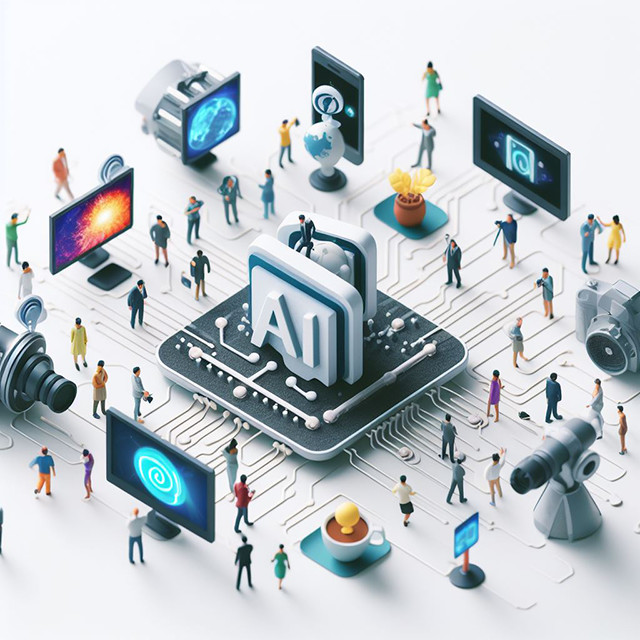Advancing Natural Language Processing in 2023 and Beyond
Natural language processing (NLP) enables computers to analyze, understand, and generate human languages. NLP powers conversational AI systems like chatbots and underlies technologies such as machine translation, text analysis, and speech recognition. The field has seen remarkable progress recently through innovations in deep learning, vast datasets, and computing infrastructure.
In this article, we analyze key 2023 advancements propelling NLP capabilities forward and discuss research directions that will shape the future. We focus on large language models, multilinguality, algorithmic fairness, emerging applications and perspectives from Barcelona.
Pretrained Language Models
Pretrained language models are NLP systems trained on massive text corpora in an unsupervised manner to learn general linguistic representations. They can be fine-tuned on specialized data for downstream tasks. Prominent examples include OpenAI's GPT-3 and Google's LaMDA which employ transformer architectures.
Foundation Models
Foundation models denote a subclass pretrained on diverse modalities and datasets to acquire broad abilities. They provide baseline knowledge and language understanding to enable quick learning of new skills.
Prompt-Based Learning
Leveraging pretrained models for task adaptation via prompt engineering, without further training, is an efficient technique called prompt-based learning.
For instance, Anthropic's Claude fine-tunes an Evolved Transformer model using instructional prompts for conversational safety. The Barcelona startup focuses on aligning pretrained foundations responsibly.
Multimodal Learning
Multimodal learning combines different data types like text, images and speech as input to models. Multimodal systems can ground language in sensory context for deeper meaning.
Vision-Language Models
Vision-language models integrate computer vision and NLP to jointly process images and text. For example, BLIP from UPC Barcelona improves image captioning by learning visual concepts associated with language.
Multimodal understanding broadens the scope of language AI beyond text alone. Barcelona's cross-disciplinary research centers are advancing these techniques.
Multilingual Capabilities
Multilinguality involves training models on diverse languages to handle translation, analyze non-English text, and generate multilanguage content.
Massively Multilingual Models
Models like Google's M2M-100 trained on over 100 languages point to the future of universal NLP. A single model can support multiple languages and modalities.
Code-Switching
Code-switching refers to seamlessly blending languages, which multilingual models are learning to emulate. For global communication, adapting to mixed languages is vital.
Startups in Barcelona are leveraging multilingual NLP for Spanish and Catalan users. Multilinguality will be crucial as NLP diffuses worldwide.
Algorithmic Fairness
As language models grow more capable, mitigating risks around biases, toxicity, and misinformation is critical for ethical NLP.
Dataset Auditing
Auditing training corpora by detecting harmful examples aids removing biases in models. Barcelona researchers have proposed frameworks to audit NLP models.
Controlled Generation
Using attributes like sentiment, topics and style as conditional inputs during text generation can reduce harmful outputs. Controlled text generation research at UB and UPC ensures NLP safety.
Prioritizing algorithmic fairness helps fulfill NLP's vast potential for good.
Emerging NLP Applications
Recent advances in natural language processing are enabling a myriad of new applications across industries:
Creative Writing and Content Creation
Large language models like GPT-3 can generate coherent stories, poetry, lyrics, scripts, and other creative writing given a prompt. Tools built on these models provide an automated "co-author" to aid human authors and content creators.
Search and Recommendation Engines
NLP advances allow better semantic understanding of user intents. This enables search engines and recommendation systems to return more relevant results by analyzing linguistic clues in queries.
Customer Service and Conversational AI
Intelligent chatbots and virtual assistants rely on natural language processing to parse customer requests and questions. Advanced dialogue systems can provide empathetic, human-like responses.
Clinical Documentation
NLP techniques help automatically populate electronic health records by transcribing and summarizing key details from patient-provider conversations. This improves clinical efficiency.
Multilingual Interaction
Universal encoders and massively multilingual models allow businesses to engage customers in their native languages. Advances in language translation and code-switching facilitate global communication.
Sentiment and Text Analysis
Organizations can leverage NLP to extract insights from customer feedback, social media, surveys and other text sources. Automated sentiment, topic and intent analysis powers data-driven decisions.
The potential applications of NLP are vast, and the field is still in its early stages of development. However, the advancements that have been made in recent years are a testament to the power of NLP and the potential it has to change the world.
Perspectives on Advancing NLP from Barcelona
As a leader in AI safety research, Barcelona is well-positioned to shape the responsible development of NLP technologies. For instance, the Polytechnic University of Catalonia has proposed algorithms to uncover biases and discrimination in opaque predictive systems. Additionally, the University of Barcelona contributes leading work on controlled text generation to mitigate AI harms.
Barcelona offers a collaborative ecosystem of academics, policy experts and technologists who can guide NLP towards trustworthy outcomes focused on human wellbeing. With proactive coordination, Barcelona's institutions can steer this immensely powerful technology towards broad benefit.
The innovations discussed make clear that NLP will continue rapidly advancing. Barcelona has the opportunity to direct this progress towards language AI that uplifts society ethically. The choices made today will resonate for decades to come as NLP transforms communication and creativity.



Comments
Post a Comment